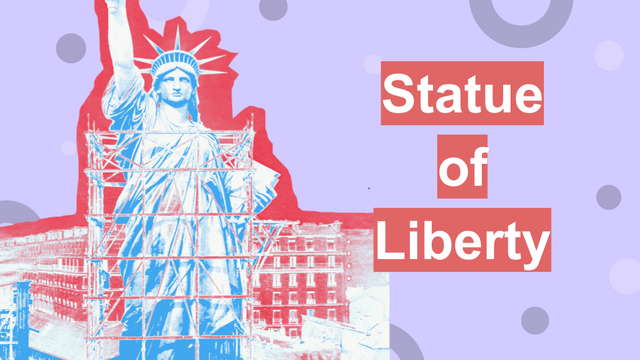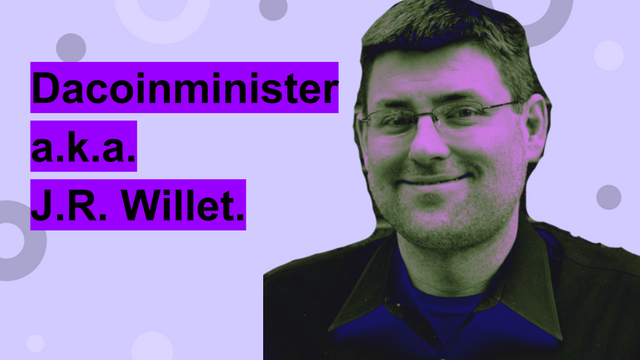The rise and the fall of ICOs (Part I) - The rise (video+script)
The idea of collective financial help for different initiatives is not new and has been existing for a almost two centuries, where ICO appeared just 4 years ago as an aftermath of blockchain technology and cryptocurrencies development process.
Hundreds of ICOs were conducted during 2017-2018 beating the record of 4 billion dollars collected just for 1 project and inflating the whole new market up to 22 billion dollars in total in just two-year period. It was chaotic, anarchic and unregulated. Once regulators in many countries started to pay attention to the market and to develop legal frameworks for control, the market had started to blow off the steam and did it almost to the full extent through the whole 2018, bringing even more drama to Bitcoin and cryptocurrencies bear market cycle.
As a proactive investor I wonder if ICO as an excellent innovative investment vehicle is dead and if regulators are drawing us back to the old fashion bureaucratic procedures of private capital investments. In this episode, I will try to show how the market started, what it has reached and what we shall expect in the future. Ladies and gents you are watching “What da hack?! Show” here we speak simple language on complex topics in economics, business, technologies and looking for ways how to hack them. I’m your host Boogieman. Let’s hack it up.
Crowdfunding history
The history of crowdfunding started long ago going back to the 17th century. One out of many projects crowdsourced years ago was Statue of Liberty in United States of America. In 1884 France gave New York City a beautiful gift of the copper statue of Lady Liberty. Unfortunately, the city government sources run out fast and were not enough to fund the installation, so it turned into the risk to be frozen for half a year.
Eventually, the news reached a well-known New Yorker, newspaper publisher, Joseph Pulitzer. Yes, that very Pulitzer, whose Pulitzer Prizes are given annually for achievements in journalism in the US. So, albeit Joseph was well-off at the moment and could give a decent financial contribution, he decided to leverage on mass-media resource he had and to draw public attention to the problem.

In March, 1885 he published an article in New York World which motivated 160 000 donors to collect a donation of more than $100 000.
In 2010 all the crowdfunding websites helped companies and individuals to raise $89 million. The number hit $1.47 billion in 2011. Along with that the first wave of ICOs has rolled as Tsunami and collected more than $20 billion dollars just for the last two years (2017-2018).
Accordingly, to Statista.com the market is projected to grow up to $6.8 billion in 2019 and to rich $1 trillion mark by 2025. Share your guesses for 2019 market size in the comments section and stay tuned as we are moving to the very first ICO.
The very first ICO
To speak about ICO, first of all, let’s define the term of ICO.
ICO or Initial Coin Offering is a type of crowdfunding model involving digital or software-based tokens, where such tokens can represent equity or serve as a native token designed for a network utility.
Bitcoin network came into existence on January , 9th in 2009. On July, 31th in 2013 a bitcointalk forum user, hiding behind nickname “dacoinminister”, wrote a post in which he asked to support his idea of creating a new layer on top of Bitcoin blockchain. Here is the quote:
“I am VERY excited to announce that I now have a complete specification for building a protocol layer on top of bitcoin (like how HTTP runs on top of TCP/IP).
The coins of the new layer have
Additional security features to make your money much harder to steal
Built-in support for a distributed currency exchange
Built-in support for distributed betting (no need to trust a website to coordinate bets)
Built-in support for "smart property" which can be used to create and transfer property such as titles, deeds, or stock in a company
Capability to hold a stable user-defined value, such as an ounce of gold or U.S. Dollar, with no need to trust a person promising to back up that value
The fundraiser was structured like a kickstarter, but it is also an investment. If we're successful, the purchased MasterCoins could be worth a tremendous amount of money someday.”

The author of the post was a well-experienced software developer named J.R. Willet. This man has the right to call himself as the inventor or the father of ICOs. He was the first who decided to collect Bitcoins in exchange of a digital token that presents a security. Despite the fact that there were no any rules of hosting an ICO that time, Willett applied some good ethics and honestly revealed the potential risks to investors and kept the project accounting transparent, which is hardly accomplished by the majority of the latest ICOs nowadays.
The project raised 5000 Bitcoins (equal to $500 000 at the time) and now it is more known as OMNI platform. Yes, that ONMI layer running Tether also known as USDT, the very first stable coin in the cryptomarket pegged to US Dollar. Hit the like button and write down in the comments if you want to know more about OMNI project. So if I see interest from you, I will do a video on it.
And we are moving the next chapter which is “ICO craze”.
ICO craze
It is hard to define what events turned out to be the catalysts leading to the ICO boom. There is always a long consequence of events happening before and during such market explosions. So let’s dive in and try to outline the factors which made the craze happened and why it was so furious.
First of all, no regulation. Although 2017 was the fourth year for ICOs, it was still a prerogative of crypto community. The market was still flooded with geeks, mass media did not cover the topic daily and your neighbour did not even know what a cryptocurrency is and did not dream about a lambo after investing in another scam. Ha-ha (evil laugh). So people from the governments did not have even a small intention about controlling the market, because most of them did not know about it and the rest did not understand it at all. No KYC, no identity verification, the investment process was fluent. Everything an investor needed was a wallet with some crypto coins and a project with a fleshy landing page and a white paper promising high yield. So the only issue that could worry investors was how to keep private keys safe.

FOMO. Let me ask one question. How much time would you spend researching a project when you heard a story how some people invested $1000 dollars the other week and now they are riding a lambo with big-boobed blondes in the backseat and cocaine in the nostrils? How much hours would you take to think, how much days would take to investigate if there is a real intrinsic value behind another protocol or token? Well, I would be glad if you do your investments with your mind sober and after due diligence. But that’s not the case for most people, they are victims to FOMO. Fear of missing out blasted once Bitcoin hit the new all time high, which was another push to the ICO craze.
Millions in seconds. Capped sales of well-advertised projects closed in a couple of minutes or even seconds poured some more oil into the fire. During 2017-2018 10 projects attracted funds at an average speed of US$300,000 per second. The most outstanding project here is Brave with $35 million collected within 30 seconds. However, many tokens are now traded at a much lower price compared to the ICO rates, not including scam projects lost 100% of their value.
This was the rise of such investment phenomena called ICO. Yes, guys, I have found so much material and information, I can hardly fit within just 1 episode without making it more than 10 minutes. That’s why I decide it to break it into three parts. So the next episode about the fall and the future of ICOs is already coming. And to let this happen even faster, subscribe and hit the like button, if you really like this video and hit the dislike but provide a comment what you did not like, so I can make each new video better and better.
My name is Boogieman, you’ve been watching What Da Hack?! show. Next episode is about the fall of ICOs. Subscribe and don’t get hacked!
Follow What Da Hack?! on your favorite social media
Youtube - https://www.youtube.com/channel/UCwOaLJ39XEIMEVAJVMnh55w
Telegram - https://t.me/whatdahack71
Facebook - https://www.facebook.com/whatdahack71/
Reddit - https://www.reddit.com/user/whatdahack71
Steem - https://steemit.com/@boogieman
Disclaimer:
Please be advised that the presented analysis is not an investment/financial advice, trading advice or any other type of advice. Presentation owner does not have any responsibility for any decision taken based on the provided content. The content is purely for information purposes and presentation owner does not have any responsibility for any missing or wrong information. Any information included can be used at one's own risk. Moreover, cryptocurrencies are very volatile - do not invest all of your savings in cryptocurrencies.
Hello @boogieman! This is a friendly reminder that you have 3000 Partiko Points unclaimed in your Partiko account!
Partiko is a fast and beautiful mobile app for Steem, and it’s the most popular Steem mobile app out there! Download Partiko using the link below and login using SteemConnect to claim your 3000 Partiko points! You can easily convert them into Steem token!
https://partiko.app/referral/partiko
Congratulations @boogieman! You received a personal award!
You can view your badges on your Steem Board and compare to others on the Steem Ranking
Vote for @Steemitboard as a witness to get one more award and increased upvotes!